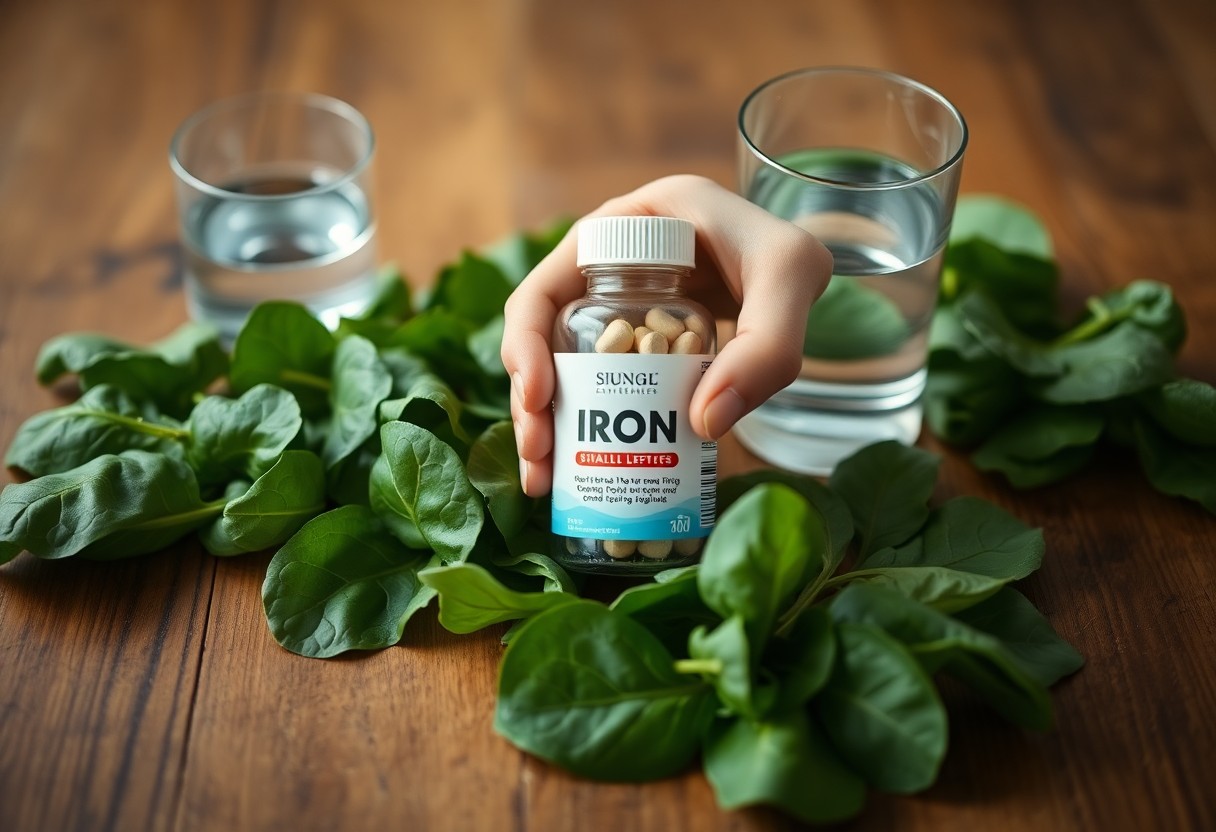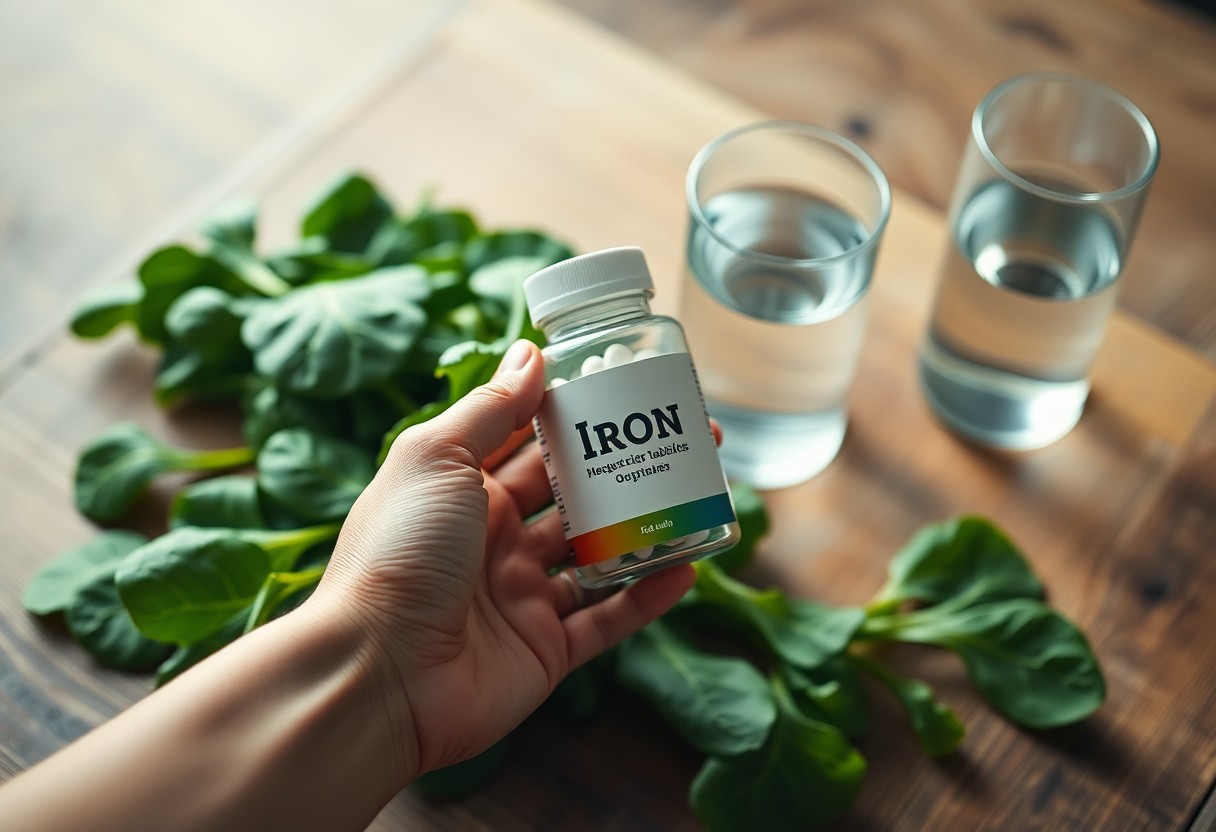Tablets can play a significant role in alleviating the symptoms of anemia, helping to boost your iron levels efficiently. If you're seeking the most effective options, it’s important to choose high-quality iron supplements that align with your health needs. This post will guide you through some of the best iron tablets available, providing you with insights into their benefits and how they can support your journey towards improved well-being. For further details, you can refer to this Physician's Guide to Oral Iron Supplements.

Understanding Anemia
For many, anemia can be a confusing and concerning condition that affects your overall health and energy levels. It occurs when your body doesn’t have enough healthy red blood cells to carry adequate oxygen to your tissues. This can lead to fatigue, weakness, and various other symptoms that impact the quality of your life. Understanding the underlying factors that contribute to anemia is vital for seeking effective treatment and regaining your vitality.
Causes of Anemia
At the heart of anemia are several potential causes, including iron deficiency, vitamin deficiencies, chronic diseases, and inherited disorders. Iron deficiency anemia is the most common type, often resulting from inadequate intake of iron-rich foods or blood loss. You may also experience anemia due to a lack of vitamin B12 or folate, which are vital for red blood cell production. Chronic conditions like kidney disease or inflammatory disorders can also contribute to this condition.
Symptoms of Anemia
Before you seek treatment for anemia, it's important to recognize its symptoms. Common signs you may experience include fatigue, weakness, pale skin, dizziness, and shortness of breath. You might also notice rapid heartbeats or cold hands and feet. Identifying these symptoms early allows you to take appropriate steps to manage your health effectively.
It’s vital to pay close attention to the symptoms of anemia, as they can significantly diminish your quality of life. You may find yourself feeling unusually tired or lacking energy, affecting your ability to perform daily activities. In more severe cases, you could experience fainting spells or notice an increase in your heart rate. If you notice any of these signs, it's advisable to consult a healthcare professional who can provide guidance on diagnosing and treating your condition.
Importance of Iron for Anemia Relief
The role of iron in your body is vital when it comes to combating anemia. Iron helps produce hemoglobin, the protein in red blood cells that carries oxygen throughout your body. Without sufficient iron, your body can't produce enough healthy red blood cells, leading to fatigue and weakness. Exploring options like the Best iron supplements 2025 – tried and tested can guide you toward solutions that effectively increase your iron intake and help relieve symptoms associated with anemia.
Role of Iron in Blood Production
Besides maintaining overall health, iron is indispensable for blood production. It helps form hemoglobin in red blood cells, which is imperative for transporting oxygen from your lungs to other body parts. When you have adequate iron levels, your body can efficiently produce healthy red blood cells, improving your energy levels and overall well-being.
Daily Iron Requirements
To effectively manage your iron levels, it's imperative to know your daily iron requirements. The recommended intake varies by age, gender, and physiological status, such as pregnancy or menstruation. Generally, adult men need about 8 mg, while adult women often require 18 mg per day to compensate for menstrual losses.
Also, factors like dietary choices and absorption rates can influence how much iron you actually need. For instance, vegetarians may require up to 1.8 times more iron due to the differences in non-heme iron absorption from plant sources compared to heme iron from animal products. Tracking your dietary intake can help you meet your iron needs effectively and reduce the risk of anemia.
Types of Iron Supplements
Despite the wide variety of iron supplements available, it's important to choose the right type based on your specific needs. Here’s a breakdown of common iron supplement types:
| Ferrous Sulfate | Most common and cost-effective option |
| Ferrous Gluconate | Gentler on stomach, slightly less iron |
| Carbonyl Iron | Slow-release, lower chance of overdose |
| Iron Citrate | Absorbed easily, may cause fewer side effects |
| Heme Iron Polypeptide | Derived from animal sources, very absorbable |
This variety ensures you can find a supplement that suits your lifestyle and health goals.
Ferrous Sulfate
Between the most popular iron supplements, ferrous sulfate is often recommended for anemia. It's highly soluble and can provide a substantial amount of elemental iron. However, some individuals may experience gastrointestinal side effects, so starting with a lower dose could be beneficial.
Ferrous Gluconate
Around individuals who may have sensitivities to typical iron supplements, ferrous gluconate serves as a milder alternative. It contains less elemental iron than ferrous sulfate, making it easier on your digestive system.
Supplements like ferrous gluconate are often favored by people looking to avoid stomach discomfort while still increasing iron intake. This can make them a suitable option for long-term use, especially in individuals who find other forms hard to tolerate.
Carbonyl Iron
To provide a unique and safe option, carbonyl iron is a pure iron form that absorbs slowly in the body. It has a low risk of toxicity thanks to its gradual release, making it suitable for various users, including those at risk for iron overload.
With carbonyl iron, you benefit from an effective supplement that minimizes gastrointestinal issues while providing your body with the iron it needs. This slow-release mechanism ensures that your body can adequately process the iron, helping to maintain steady levels without causing discomfort.
Top Iron Tablets for Anemia Relief
Not all iron tablets are created equal when it comes to alleviating anemia symptoms. To find the most effective option for your needs, you may want to explore What Is The Best Iron Supplement For Anemia. Always consult with your healthcare provider before beginning any supplement regime to ensure the right choice for your health.
Comparative Review of Popular Brands
Behind the scenes, various iron tablet brands offer different formulations and absorption rates. Here’s a quick comparison:
| Brand | Formulation |
| Nature Made | Ferrous Sulfate |
| Slow Fe | Iron Polysaccharide |
| Feosol | Ferrous Fumarate |
Customer Testimonials and Ratings
Along with product formulations, customer reviews can provide helpful insights into effectiveness. Many users report improvements in energy levels and overall well-being after incorporating these supplements into their routines.
It’s imperative to consider the experiences of fellow consumers when selecting iron tablets. Positive feedback often highlights improved energy and reduced fatigue, while negative reviews may indicate side effects. By exploring customer testimonials, you can make a more informed choice that aligns with your personal health needs and preferences.
Dosage Recommendations
Once again, the appropriate dosage of iron tablets is necessary for effective anemia relief. It's vital to consult a healthcare provider for personalized advice, as individual needs may vary greatly based on factors such as age, gender, and the level of anemia. Generally, starting with a lower dose and gradually increasing it can help your body adjust while minimizing side effects.
Standard Dosage Guidelines
Dosage typically ranges from 60 to 120 mg of elemental iron per day for adults with iron deficiency anemia. Taking this dose in divided amounts can enhance absorption and reduce gastrointestinal discomfort. It's best to take iron supplements on an empty stomach, accompanied by vitamin C-rich foods or supplements to improve absorption.
Specific Considerations for Different Age Groups
About infants, children, and pregnant women, specific dosage adjustments might be necessary. For example, while children may require 3 mg of elemental iron per kilogram of body weight, pregnant women often need higher doses to meet the demands of both mother and fetus.
Also, be mindful that particularly young children and pregnant individuals have different iron requirements due to their unique growth and developmental needs. For instance, infants typically should not consume adult iron supplements, whereas pregnant women often need around 27 mg per day. Tailoring the dosage to the age group can help ensure optimal absorption and minimize potential side effects.

Potential Side Effects and Interactions
Keep in mind that while iron supplements can effectively alleviate anemia, they may also lead to side effects or interact with certain medications. It’s important to monitor how your body responds and consult with a healthcare professional if you experience any adverse reactions or if you’re taking other prescriptions.
Common Side Effects of Iron Supplements
Side effects from iron supplements can include gastrointestinal issues such as constipation, diarrhea, or upset stomach. You might also notice dark stools, which is a common and harmless effect of increased iron intake. Staying hydrated and consuming the supplements with food can help mitigate some of these symptoms.
Drug Interactions to Be Aware Of
Effects of iron supplements can be amplified or diminished when taken alongside certain medications, such as antacids, calcium supplements, or specific antibiotics. These interactions may hinder the absorption of iron, reducing its effectiveness in treating anemia.
Indeed, it's vital to discuss your complete list of medications, including over-the-counter drugs and supplements, with your healthcare provider. Some medications, like bisphosphonates used for osteoporosis or certain thyroid medications, can be negatively impacted by iron intake. It’s best to schedule your iron supplement at least two hours apart from these medications to maximize their efficacy and avoid any unwanted interactions.
Summing up
With this in mind, selecting the best iron tablets for anemia relief can significantly enhance your well-being and energy levels. Ensure you choose products with high bioavailability, coupled with necessary vitamins that support iron absorption. Consider your dietary habits and lifestyle when making your choice, as these factors can influence how effective the supplements are for you. Always consult a healthcare professional to tailor the right option for your specific needs, ensuring that you achieve optimal results in managing anemia.
FAQ
Q: What are the signs of iron deficiency anemia?
A: Signs of iron deficiency anemia may include fatigue, weakness, pale skin, shortness of breath, dizziness, and cold hands and feet. Some individuals may also experience headaches, brittle nails, and unusual cravings for non-food items (a condition known as pica).
Q: How do iron tablets help with anemia?
A: Iron tablets help increase the levels of hemoglobin in the blood, which is imperative for transporting oxygen throughout the body. By replenishing the body’s iron stores, these tablets can alleviate symptoms of anemia and improve overall energy levels by ensuring that cells receive adequate oxygen.
Q: What should I look for when choosing an iron tablet?
A: When dicking out an iron tablet for anemia relief, consider factors such as the type of iron used (ferrous sulfate, ferrous gluconate, etc.), the dosage (generally 30-100 mg of elemental iron per day), additional ingredients (like vitamin C for better absorption), and any side effects. Consulting with a healthcare professional can assist in finding the most suitable option for your needs.
Q: Are there any side effects associated with iron tablets?
A: Yes, some common side effects of iron tablets can include gastrointestinal issues such as constipation, nausea, and stomach upset. To minimize these effects, it is often recommended to take iron tablets with food or gradually increase the dosage. If side effects persist or worsen, it is advisable to consult with a healthcare provider.
Q: How long do I need to take iron tablets for anemia relief?
A: The duration of iron supplementation can vary depending on the severity of the deficiency and individual response to treatment. Generally, it may take several weeks to months to see improvement in symptoms and blood levels. Ongoing monitoring by a healthcare provider is important to ensure proper levels are achieved and maintained.

0 Comments